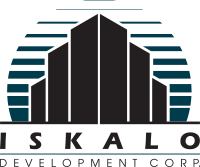Today, about 55% of the world’s population lives in urban areas. By 2050, this number is expected to increase to 68% as population growth and urbanization shifts people from rural settings to cities. Sustainable urban development plays an important role in mitigating climate change while accommodating a population surge.
What is Urban Development?
Rapid urbanization introduces a number of obstacles, including increased waste and air pollution, inefficient commuting and transportation, and fewer job opportunities. In a world where climate change is often a topic of discussion, a lack of strategic planning can be destructive for urban communities, rather than profitable.
Sustainable urban development is the result of careful, deliberate urban planning and design to integrate residential expansion into large cities. It takes an inclusive, holistic approach to environmental preservation, transportation and competition. Sustainable urban development aims to build eco-friendly communities and cities that contribute to a greener, resilient society that welcomes businesses, residents and visitors alike.
Transportation
To achieve a sustainable and inclusive urban community, developers must focus on more environmentally-friendly transportation. Interconnected sidewalks, bicycle lanes and car-free streets connected by public transit encourage walkability, biking and public transportation rather than cars. By minimizing the number of vehicle trips, these walkable cities can greatly reduce toxic air pollution.
Accessibility
Integrated urban centers are designed to bring people, activities, businesses and public spaces together for stronger, cleaner neighborhoods and improved energy efficiency. With accessible walking and cycling paths, public transit, and nearby businesses, restaurants and shopping, residents have access to job opportunities, resources, entertainment and more.
Sustainability
Responsible urban development offers a foundation for long-term sustainability. Urban planners work closely with environmental protection agencies to ensure that wildlife and greenery are protected throughout the natural expansion process. Sustainable urban development focuses on reducing a city’s pollution, increasing recycling efforts, and efficient energy usage through mixed-use development projects, alternative energy, reusing building materials and increasing the availability of recycling facilities.

